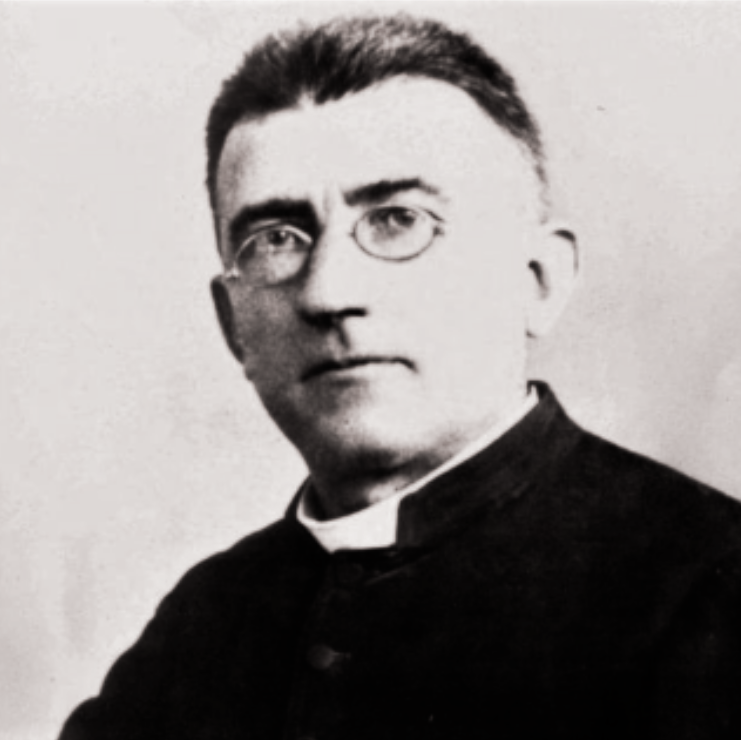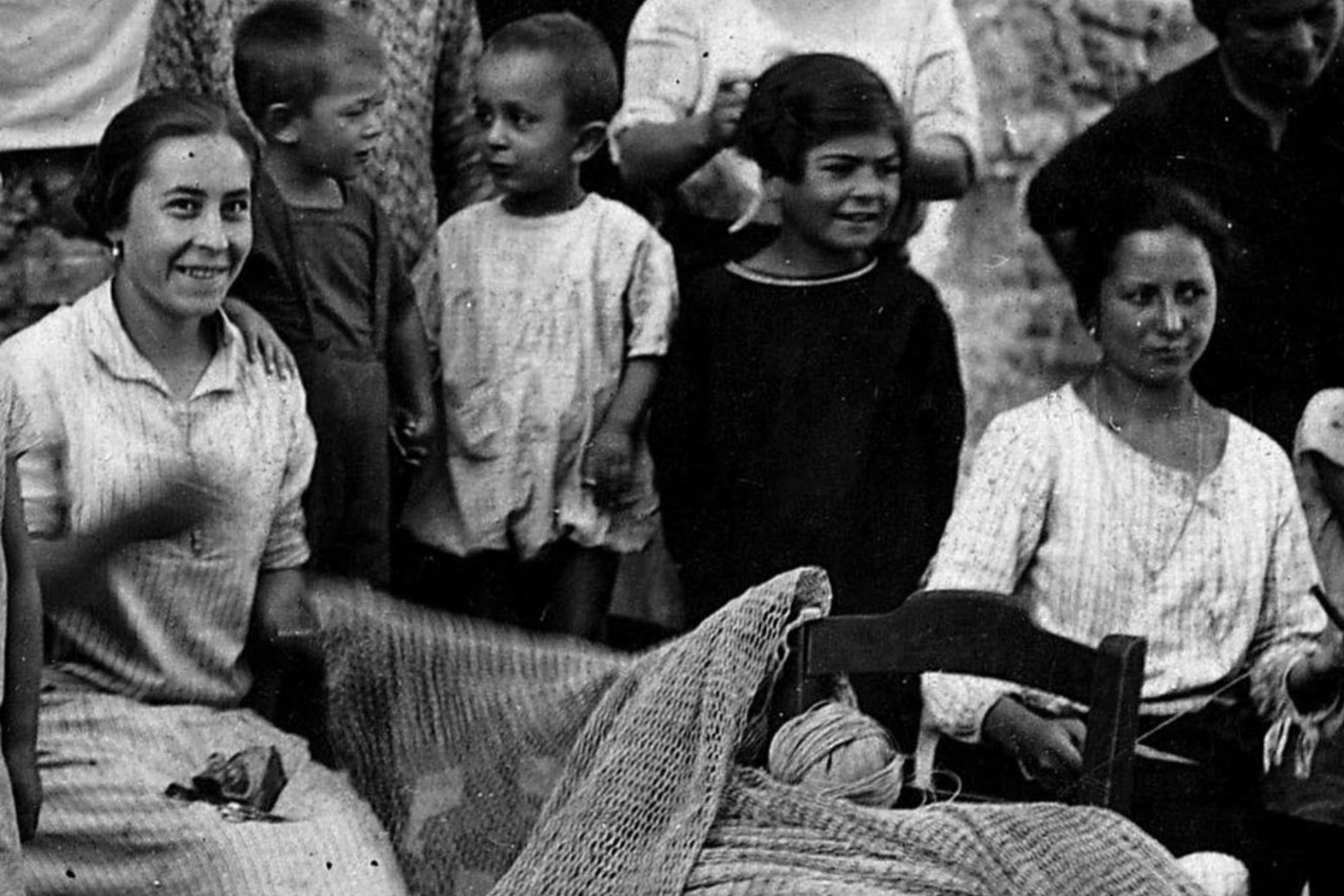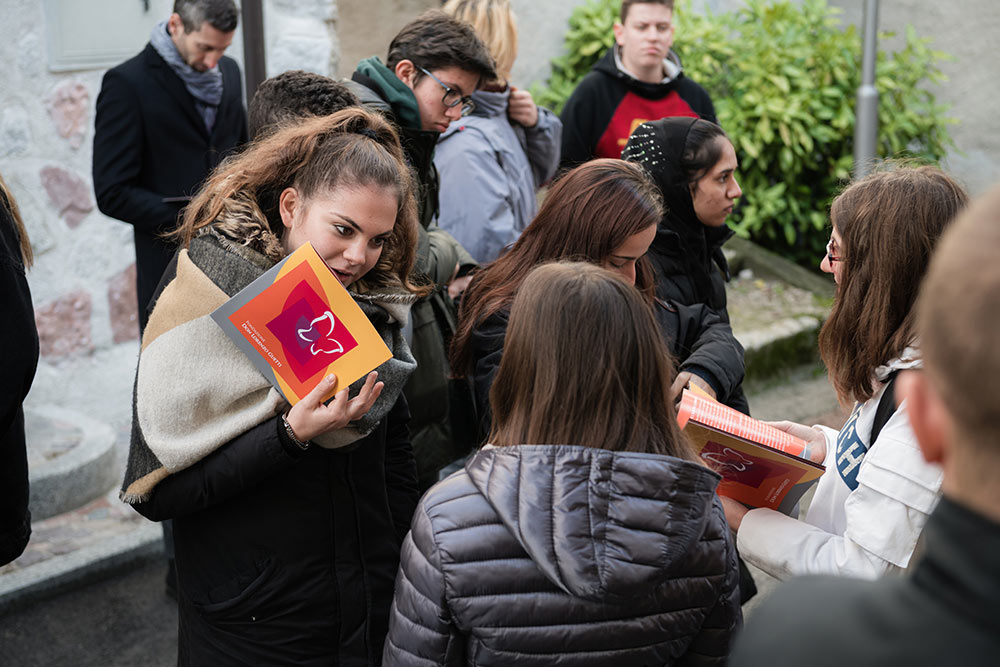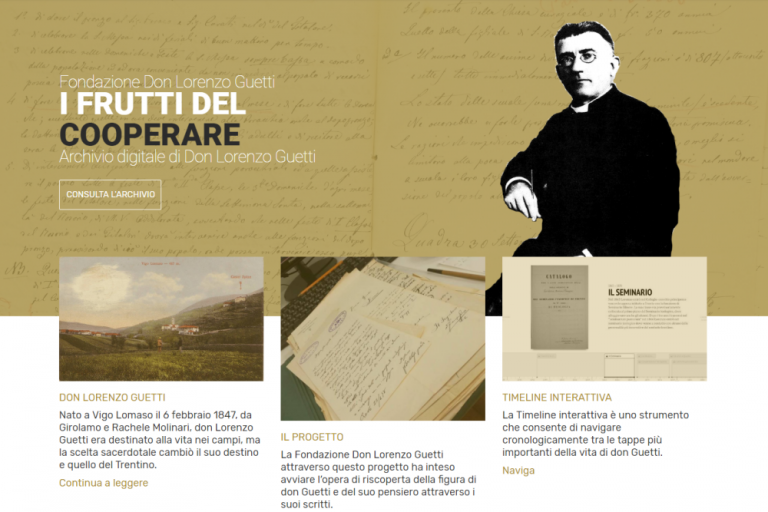
LORENZO GUETTI‘S BIRTH
Lorenzo Guetti was born on 6th February 1847 in Vigo Lomaso, a tiny village of the Giudicarie Esteriori valley. His father, Girolamo Alberto Guetti, was born on 4th May 1820, “son of Gio. Battista Guetti and Lucia Serafini”. His mother, Rachele Molinari, became known as “Rachele Molinari of Marcello” on the occasion of Lorenzo’s christening.
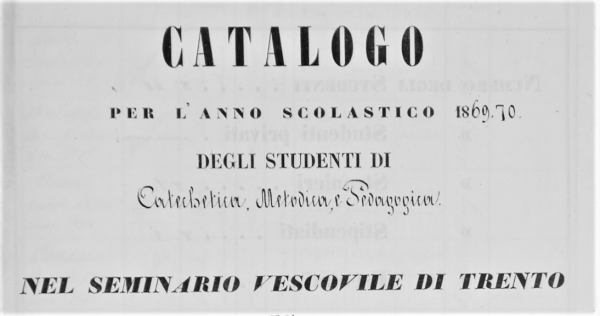
AT THE SEMINARY
In 1863 Lorenzo Guetti got into the episcopal College which had just been established in Trento. After three years spent at a minor Seminary, he joined in 1866 a theological Seminary, where he met some of the most innovative personalities in the Trentino area.

PRIESTLY ORDINATION
On 31st July 1870 Lorenzo was ordained as a priest and on 14th August he celebrated his first Mass in the parish church in Vigo Lomaso.

COOPERATOR IN TERRAGNOLO
On 3rd September 1870 father Lorenzo Guetti was assigned as a co-worker to the priest of Terragnolo, father Antonio Girardelli. Within this context the young priest got in contact with one of the poorest and isolated communities in Trentino.

THE YEARS SPENT IN QUADRA
It’s really difficult to fully analyse all the activities that Guetti took care of during his stay in Quadra, from 1878 til 1893: the migration, the politics, the autonomy of Trentino, the cooperation, the agriculture, but not only, because his interests went beyond these macro-sectors. He was also in fact preacher-fireman, he wrote plenty of articles, many articles written in the goat’s defense, the importance of the family, the central role of the mass and many others. These were different experiences which had only one main point in common: the interest towards the disadvantaged.
Quadra is a local name used to represent four neighbouring villages in Bleggio municipality.

JOURNALISTIC ACTIVITY
Father Lorenzo’s publications goes on in different journals from 1878 until the year of his death. In his articles Guetti used pseudonyms, which are an interesting detail to look at. By reading them again carefully, we can understand the ideas and style that the priest of Quadra wanted to use for that certain journal. The pseudonyms appear indeed as some kind of dodge, implemented to strengthen the content of the same articles.
If we read them in sequence we can perceive the range of roles Father Guetti identified himself with: from priest to politician, from Catholic to highlander.

THE STATISTICS OF AMERICAN EMIGRATION
The book contains a study conducted by Father Lorenzo Guetti about the migration phenomenon.
It’s a collection of data and statistics, realised through the parishes’ network, about the migration flows from different Trentino villages towards America. The priest of Lomaso had in fact created a really precise questionnaire and, helped by the community’s priests and authorities, he published in 1888 a “Statistic about American migration in Trentino from 1870 on, completed by a countryside parish priest”.
In this collection there are notes about various classified migratory types taken into account. From these data we understand how important this phenomenon was for the Trentino population.
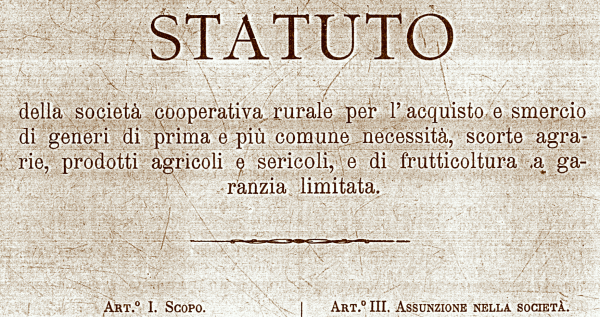
BIRTH OF THE FIRST SOCIAL COOPERATIVE
The first “sale and consumption cooperative Society” was founded in Villa, a small hamlet of Bleggio municipality, in 1890, for the will of Father Guetti. The announcement was revealed by him in the journals in this way: ”S.Croce, October 1. Fresh good news. Last Sunday, September 28, it was here established a sale and consumption cooperative society with a future store of first and common necessities. The first chairmanship has already been nominated and it has just to obtain the superior approval in order to begin an institution of good things”.
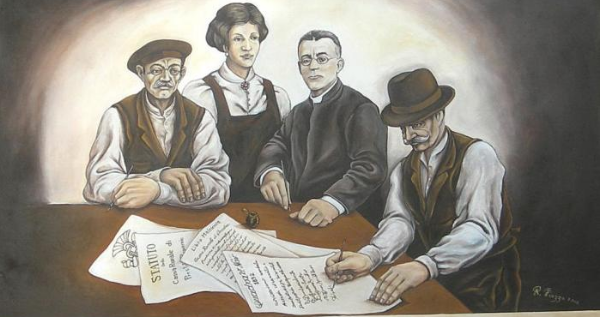
BIRTH OF THE FIRST RURAL COOPERATIVE CREDIT INSTITUTION
Since 1890 Father Guetti promoted the creation of rural credit institutions based on the Raiffeisen model, as suggested by the Provincial Council of Agriculture, but "with a negative outcome and this in the first place for its novelty, especially for the unlimited guarantee, to which the members must submit" (that means that the members united in solidarity, risking their property indefinitely in the event of bankruptcy) as well as for the difficulty of the statutes.
It was thus decided to form a committee, within the Agricultural District Consortium of Trento, composed by Augusto de Panizza and Giovanni de Zotti as a way to draw up a simplified statute to use for the formation of the credit institutions. After only two months from the publication of the statute, the first meeting for a credit institution establishment took place in Quadra on 17th July 1892, following Don Guetti’s initiative, and "17 members gave their name. On one of the next Sundays there will be the formal founding of the Company. It’s modest and unpretentious, but seems to be willing to do seriously as even little as she will do. I wish it to be the spark for many more fires"

THE YEARS SPENT IN FIAVÉ
Despite his relocation in another district, the priest from Giudicarie kept working in the fundamental sectors of his activities. Already that October he became director of the credit institution of Fiavé, the only one born in 1893. Concerning the rapid spread of the cooperative movement, Father Guetti became the president of the newborn Federation, after the waiver of the Provincial Council of agriculture’s president, Massimiliano de Mersi, who saw in father Lorenzo the most deserving person for carrying out that role. The first federal congress took place in Trento on 29th January 1896.

DEATH
Certain death (19th April 1898) was predicted to him one month before and since then, as his seminary colleague Father Geremia Dalponte remembers, he tried only “with pitiful measures to deceive himself and others regarding his illness”. Father Lorenzo had probably become aware about his pathology for some time; proof of this is the publication of “testament of father Mentore” in the journal “Almanacco Agrario”. In its last chapter in fact he told his peasants, for whom he had done his utmost, to meet him in heaven.
The probable cause of the untimely death, as father Dalponte highlighted, was to find in father Lorenzo’s hyperactivism towards the neediest in the society.











